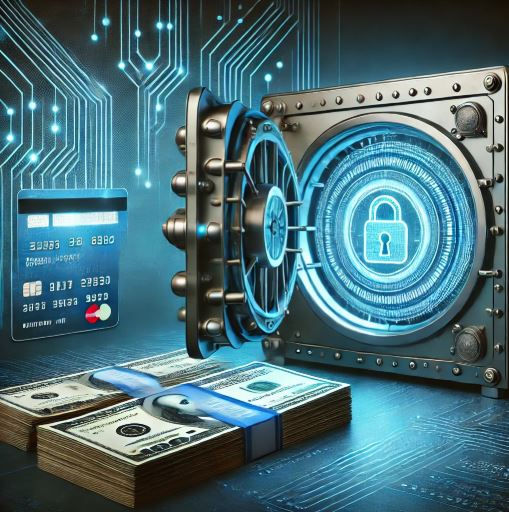Cybersecurity Across Key Industries: Tailored Solutions for a Digital World
- Apr 9, 2025
- 4 min read
As digital transformation accelerates, industries across the globe are increasingly vulnerable to cyber threats. Cybersecurity is no longer a luxury—it's a necessity. From protecting financial transactions to safeguarding sensitive health data, businesses in various sectors need to implement robust, tailored cybersecurity solutions. Here’s a look at how cybersecurity measures can be adapted to the unique needs of different industries.

Cybersecurity Solutions for Finance and Banking
The financial sector is one of the most targeted industries for cyberattacks, given the high value of financial data and the rapid pace of digital transactions. For financial institutions, protecting sensitive customer data, preventing fraud, and ensuring secure transactions are paramount.
Data Encryption: Encrypting customer data ensures that even if it’s intercepted, it remains unreadable to unauthorized parties.
Fraud Detection: AI-driven solutions can identify and prevent fraudulent activities, such as unauthorized transactions or identity theft.
Multi-factor Authentication (MFA): MFA significantly reduces the risk of unauthorized access by requiring more than just a password to authenticate a user.
Regulatory Compliance: Adhering to regulations like PCI DSS, GDPR, and others is essential to avoiding legal repercussions and maintaining customer trust.
Cybersecurity Solutions for Healthcare

The healthcare sector faces unique challenges in cybersecurity, primarily due to the sensitivity of patient data and the increasing interconnectivity of medical devices. Cyberattacks on healthcare institutions can have severe consequences, including the disruption of services and the compromise of patient privacy.
HIPAA Compliance: The Health Insurance Portability and Accountability Act (HIPAA) mandates strict controls for the protection of patient data. Ensuring compliance is vital for healthcare providers.
Ransomware Protection: Healthcare facilities are frequent targets of ransomware attacks. Implementing proactive detection systems and regular backups can minimize the impact of such threats.
Medical Device Security: The security of Internet of Medical Things (IoMT) devices, such as pacemakers and insulin pumps, is crucial to ensure patient safety.
Secure Data Access: Role-based access control ensures that only authorized personnel can access patient data, reducing the risk of insider threats.
Cybersecurity Solutions for Manufacturing

Manufacturing companies are increasingly dependent on digital systems and the Internet of Things (IoT) for operations, making them susceptible to cyber threats. A breach in the industrial control systems (ICS) or manufacturing network can halt production and cause severe financial losses.
IoT Security: Protecting connected devices from cyberattacks is essential as they form the backbone of modern manufacturing. Secure communication protocols and regular device updates are crucial.
Industrial Control Systems (ICS) Security: These systems control critical manufacturing processes, and any disruption can result in operational downtime. Using firewalls, intrusion detection systems, and network segmentation can mitigate risks.
Supply Chain Security: Securing the supply chain, especially from third-party vendors, helps prevent disruptions and data breaches from external sources.
Cybersecurity Solutions for Accounting Firms

Accounting firms manage highly sensitive financial data, making them prime targets for cybercriminals. A breach could expose clients' financial records and jeopardize the firm’s reputation.
Client Data Protection: Implementing strong encryption practices and secure storage solutions ensures the confidentiality of financial data.
Secure Communication: Encryption tools for emails and file sharing protect against unauthorized access when transferring sensitive information.
Compliance with Financial Regulations: Accounting firms must adhere to strict regulations, such as the Sarbanes-Oxley Act (SOX), ensuring that client data remains protected and audits are secure.
Cybersecurity Solutions for Government

Governments manage vast amounts of sensitive data, including national security information, citizen records, and critical infrastructure details. Cybersecurity within government agencies is of utmost importance to prevent espionage, data leaks, and other disruptive activities.
Critical Infrastructure Protection: Protecting utilities, transportation systems, and communication networks from cyberattacks is essential for national security.
Threat Intelligence: Governments must monitor potential threats from cybercriminals and nation-state actors. Collaboration with private sector cybersecurity experts can strengthen threat detection and mitigation strategies.
Public Sector Compliance: Adhering to cybersecurity frameworks such as NIST and FISMA ensures that government systems remain secure and compliant with federal standards.
Cybersecurity Solutions for Restaurants
The rise of online ordering systems and digital payment methods has made the restaurant industry a frequent target for cybercriminals. Data breaches could expose sensitive customer information, impacting brand reputation and customer trust.
POS Security: Point-of-sale systems must be protected against data breaches. Using encryption, tokenization, and secure networks ensures that customer payment information remains safe.
Customer Data Protection: With the collection of customer data through loyalty programs, restaurants must ensure they comply with data protection regulations like GDPR or CCPA.
Secure Online Ordering: Enabling secure online transactions through SSL certificates, encrypted payment gateways, and multi-factor authentication helps protect both customers and businesses.
Cybersecurity Solutions for Brokerage Firms
Brokerage firms handle high-value financial transactions and sensitive investment data, making them prime targets for cyberattacks. The need for secure communication and transaction processing is vital in this industry.
Secure Transaction Processing: Encryption and multi-factor authentication are necessary for protecting trade data and customer accounts from unauthorized access.
Market Data Protection: Securing sensitive market data from leaks ensures that the integrity of financial information is maintained
Regulatory Compliance: Brokerages must comply with regulations such as the SEC’s cybersecurity guidelines to prevent breaches and mitigate risks to their clients.
Conclusion
In today’s interconnected world, industries of all kinds must prioritize cybersecurity to safeguard sensitive data and ensure operational continuity. By implementing industry-specific solutions, organizations can defend against an ever-evolving range of cyber threats, from fraud and data breaches to ransomware and espionage. Investing in robust cybersecurity measures not only protects businesses but also fosters trust with customers, partners, and regulators, ensuring long-term success in the digital era.




Comments